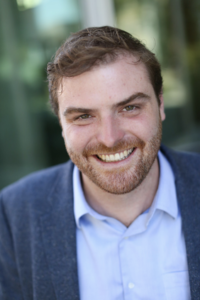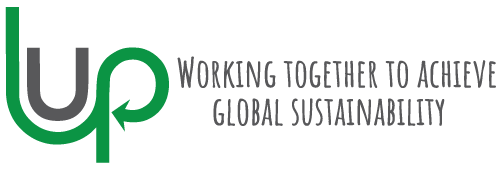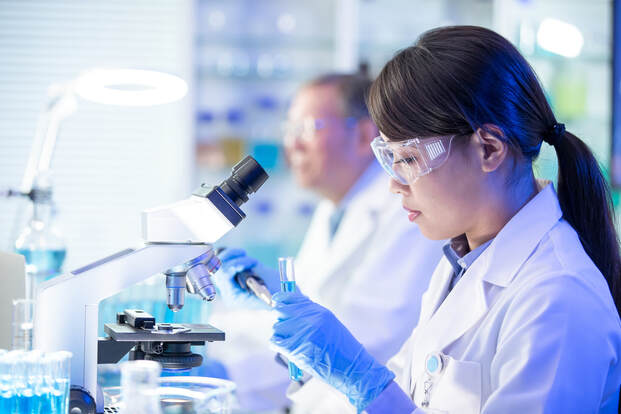Image Credit: www.mygreenlab.org
Over the past year, we have been closely following the work of My Green Lab, a global not-for-profit aimed at improving the sustainability of scientific research and the inspiring work they have done with The Hill Laboratory at La Trobe University´s Institute of Molecular Science being the first Australian laboratory to receive Green Certification (the highest level) from My Green Lab.
Today, we have the unique opportunity to sit down with James Connelly, Chief Executive Officer of My Green Lab.
One of the most influential leaders in the corporate sustainability and green building movement today, James Connelly is the Chief Executive Officer of My Green Lab. James is a frequent keynote speaker on regenerative design, sustainable business, and laboratory sustainability. He is an avid writer, and his research and commentary have been featured in news outlets such a China Dialogue, CGTN TV, Engineering News Record, Building Green, Trim Tab, Sustainable Brands, and GreenBiz.
Before joining My Green Lab, James was the Vice President of Strategic Growth for the International Living Future Institute, where he led international growth strategy and became a founding board member of Living Future Institute Europe. During his time at ILFI, James created several leading-edge sustainability programs, including Declare, an innovative ingredient transparency label for non-toxic building products, Living Product Challenge, the world’s most advanced sustainability standard for building products, Just, a social equity label for organizations, and Zero Carbon Building Certification.
James has won numerous scholarships and awards for his research and work; notably, he received a 2012 Fulbright Fellowship to research on green building rating systems in China, was selected as a Greenbiz 30 under 30 Sustainable Business Leader in 2016, and a Net Zero Energy Trailblazer in 2019.

LUP: Thank you so much for meeting with us today James. It is a real pleasure for us to have you appear as our guest. To begin with, we´d love to understand your journey a bit more. What was the start of My Green Lab and how did My Green Lab come about to create this global certification for laboratory sustainability?
James: My Green Lab was founded by the visionary scientist Dr. Allison Paradise in 2013. Allison was inspired to integrate sustainability best practices into scientific research by encouraging behavior change. Through collaboration with industry and academic leaders, Allison led the charge to affect meaningful behavior change in the lab. My Green Lab has since developed a number of programs that bring awareness to the environmental impacts of laboratories and ways to minimize them. As an ecosystem, My Green Lab’s programs address environmental sustainability holistically, from products to behavior, and from individual scientists to entire organizations.
My Green Lab Certification program is designed to give laboratories actionable ways to improve their environmental performance through a continuous improvement process I joined the organization as a board member as well as an advisor on the organization’s growth strategy before I took on the CEO role in 2020. I am proud and humbled to see the progress the organization and the global green lab movement have made over these past years.

Image Credit: My Green Lab
LUP: The My Green Lab Certification is considered the gold standard for laboratory sustainability best practices around the world, having supported over 1,000 labs in a range of sectors by providing scientists and the teams that support laboratories with actionable ways to make meaningful change by saving money and preserving resources.
Please tell us how more laboratories in Australia can become My Green Lab certified. What are the steps they need to take?
James: The journey to becoming a My Green Lab Certified lab starts with a Baseline Assessment Survey, which requires a majority of members actively working in or supporting the lab to answer a series of questions. This online self-assessment covers topics such as how they use and maintain equipment, the techniques they employ, and how they purchase, use, and dispose of products. Using these responses, we identify best practices already in place and
recommend steps that the lab could take to adopt additional sustainability best practices.
Using our recommendations as guidelines, we encourage the lab personnel to take some time (typically ~6 months) to make changes in their laboratory, enlisting the help of their organization´s sustainability team, safety, facilities, or EH&´S teams (if applicable). After a number of changes are made, members of the lab retake the online self-assessment survey. We quantify the extent of progress in adopting best practices in the lab through the
responses provided to us. Subsequently, the lab receives an overall score (in percentage) and a certification level. We also give the lab new recommendations for further improvements to make before they seek re-certification in two years (the certification is valid for two years).
After the initial certification, the lab must re-certify within two years to maintain its certified status. Labs can come back sooner (within one year) if they want to check in on their progress more regularly. When the lab is ready for re-certification, they retake the online self-assessment survey to see what best practices are still implemented and where they might make future changes. By making this a continuous improvement process, we allow labs to make continual changes and gauge how well the sustainability best practices are being passed on to newer members of the lab— and consequently, to what extent sustainability has become part of the lab culture.
More information about the program can be found on our webpage here.
LUP: Whilst My Green Lab is based in the US, you are making a significant impact on laboratories around the world. What are your plans for the Asia-Pacific/Australasia region now and into the future, and how can more Australian laboratories get involved?
James: My Green Lab started as a local non-profit in 2013 and is now a powerful international agent for change towards a sustainable future. We have made significant expansions outside of North America and engaged thousands of scientists and other lab professionals in the UK, EU, Asia, and Australia.
We are considering an Asia Pacific Summit in 2023 and would encourage any interested and passionate individuals or regional leaders to be in touch with us to discuss collaboration.
THANKS JAMES!

